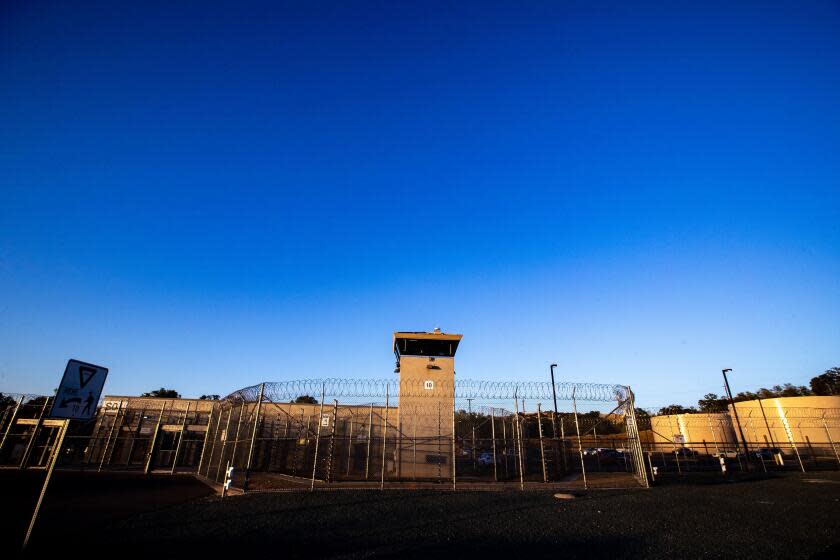California lawmakers add measure to end forced prison labor to the November ballot

California lawmakers voted to place a constitutional amendment on the November ballot to ban involuntary servitude, a change that would remove an exception in cases involving the punishment for a crime.
If passed by voters, the ballot measure would end mandatory work requirements for state prisoners, instead making jobs for those incarcerated voluntary.
“The current practice of forced labor does not prepare incarcerated people for success upon reentry and often prevents rehabilitative services,” said Sen. Steven Bradford (D-Gardena) during Thursday’s floor session. “Let us take this step to restore some dignity and humanity for the often forgotten individuals behind bars.”
The California Constitution mirrors the 13th Amendment of the U.S. Constitution and prohibits slavery and involuntary servitude. However, both allow involuntary servitude as punishment for a crime.
The first push to remove that exception from the state Constitution stalled in 2022 after the state Department of Finance estimated that barring forced labor could cost the state billions of dollars annually if the Department of Corrections and Rehabilitation were forced to pay prisoners the minimum wage.
The proposed constitutional amendment is one of 14 bills introduced by the California Reparations Task Force, which has sought to create proposals and recommendations to address the injustices and inequities sustained by the descendants of African Americans enslaved in the U.S.
“As we do the work of reparations we refer to slavery as a relic of the past,” said Sen. Lola Smallwood-Cuevas (D-Los Angeles). “But as I stand here today we have thousands of indentured servants in our penal system.” The measure passed the Senate and Assembly with bipartisan support.
Assemblymember Lori Wilson (D-Suisun City), chair of the Legislative Black Caucus, revived the proposed constitutional amendment last year. Wilson said the effort has nothing to do with changing wages for prisoners. But she expects the issue of minimum wages for prisoners to come up next session.
An earlier version of the proposal would have made prison work optional, but it did not strike language in the Constitution that says “involuntary servitude is prohibited except to punish crime.”
After negotiations, the governor’s office and advocates came together last week and the new version of the proposal would remove the language.
Currently, the Department of Corrections is permitted to require able-bodied inmates to work for as little as 35 cents an hour.
Carmen-Nicole Cox, director of government affairs at ACLU California Action, who has been involved in negotiations, said the governor’s “fingerprints” are on the measure. There was no debate on the Senate and Assembly floors during Thursday morning’s votes.
The new proposed amendment, through Assembly Bill 628, a companion Fbill to the ballot language, would make prison work optional by instituting a voluntary work program. The bill also explicitly says that the state would not be required to pay prisoners minimum wage and that the secretary of the Corrections Department would set prison wages.
This was an amendment that criminal justice advocates objected to in negotiations with the governor’s office.
“We’ve had to make our concessions,” Cox told The Times. She added that, despite those compromises on wages, a triumph for advocates was to include language that forbids disciplinary actions against incarcerated individuals for denying a work assignment. “We will be the first state to amend the constitution and explicitly say you can’t pun-ish people for refusing work.”
If passed, it will go into effect Jan. 1.
This story originally appeared in Los Angeles Times.


